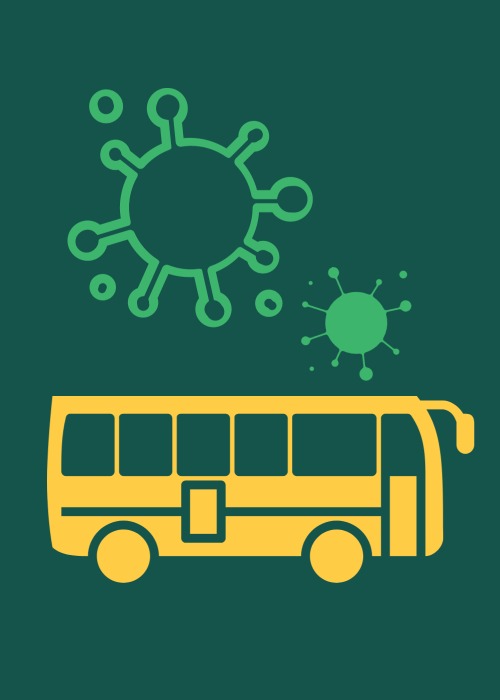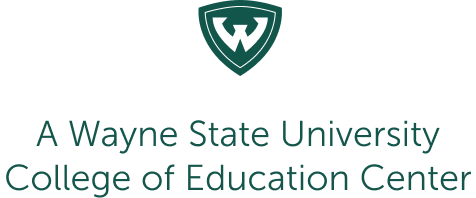Our Mission and Work
We work collaboratively with the Detroit education community to design and implement studies that answer questions of critical importance to improving the systems that contribute to the academic, behavioral, and socioemotional outcomes of public school students in Detroit. Our work contributes new knowledge to academic scholarship while also being accessible to and usable by practitioners and policymakers.
Our work is guided by the following principles:
- We engage in equitable work processes internally and externally.
- We have an improvement orientation, working with humility and striving to learn.
- We are committed to the co-creation of research with the Detroit communities we serve.
- We apply rigorous research methods and processes to our work to inform advocacy that is rooted in empiricism.
We began this work as the Detroit Education Research Partnership in 2016 and have grown into a center in the College of Education supported by Wayne State University and external sponsors. We seek to create opportunities for scholars and students across the university and broader academic community to join our collaborative partnerships and gain access to data and study contexts that are necessary to answer questions of critical importance to the Detroit educational and youth development systems.
Learn more about our ongoing projects below. For past research, check out the Research page.
current research focus
Summer Youth Research Institute
We will convene up to 40 Black and Brown youth for a Summer Youth Research Institute (SYRI) to expand youth leadership in Detroit PEER’s RPP. Youth activists from our RPP member organizations will be SYRI workshop co-facilitators. They will co-create and carry out curricula to teach principles of youth leadership and organizing to a new cohort of Detroit PEER youth advisors. The new cohort will engage in Youth Participatory Action Research (YPAR) to develop campaigns for educational justice based on critical issues of personal importance to them. They will also receive culturally relevant learning about the educational experiences of Black and Brown youth in Detroit, engage in youth empowerment exercises, learn the foundations of critical qualitative and quantitative research, and use storytelling for liberatory educational policy change. By the end of 2024, the youth will showcase their YPAR results and develop political actions to call for the educational opportunities they identify as necessary for Detroit youth thriving.
Lead Researcher Erica B. Edwards
Partners 482Forward
Funders National Network of Education Research Practice Partnerships

current research focus
Every School Day Counts Detroit (ESDCD) 4 Pillars Project
This is a mixed methods developmental evaluation of the implementation and effect of a whole-school initiative to reduce chronic absence through the use of wraparound services, communications, technical assistance, and research.
Lead Researcher Danica Brown
Partners Detroit Charters, DPSCD, Every School Day Counts Detroit
Funders Skillman Foundation

current research focus
School Access and Transportation in a Time of COVID
This study examines the impact of the COVID-19 pandemic on school mobility and enrollment in Detroit and NYC.
Lead Researcher Jeremy Singer, Sarah Winchell Lenhoff
Partners DPSCD, REACH center at Tulane
Funders Institute of Education Sciences

current research focus
Parent Work Schedule and Student Attendance
This study examines how parents’ employment and work schedule are associated with student attendance in school and the probability of being chronically absent. It contributes new knowledge on how workplace polices outside of schools can shape what we typically think of as school outcomes.
Lead Researcher Kess Ballentine
Partners Detroit Charters, DPSCD
Funders Skillman Foundation

current research focus
Participatory Action Research to Reduce Chronic Absenteeism
This is a participatory action research project designed to address chronic absenteeism and its impact on Detroit neighborhoods. With Detroit PEER support, community members have designed and carried out comparative studies to understand youth and educator perspectives on chronic absenteeism. The goal of the project is to support schools with understanding and addressing chronic absenteeism based on youth-centered, contextually specific, and neighborhood-based information.
Lead Researcher Erica B. Edwards
Partners 482Forward, Every School Day Counts Detroit, Urban Neighborhood Initiatives
Funders Spencer Foundation

current research focus
Attendance Agent Networked Improvement Community
This study explores the implementation and effectiveness of a key district strategy for reducing chronic absenteeism: the use of school-based attendance agents and a multi-tiered system of support. We examine the organizational and environmental conditions that shape agents’ work, their conceptual understanding of the problem of absenteeism, their use of improvement methods to learn how to improve their practice, and the alignment of the strategy with the nature of the problem in Detroit.
Lead Researcher Sarah Winchell Lenhoff
Partners DPSCD, Every School Day Counts Detroit
Funders Spencer Foundation

current research focus
Economic and Educational Opportunity in the Context of Neighborhood Change
Children growing up in segregated and under-resourced neighborhoods and schools have continuously faced structural inequities resulting in worse educational and economic outcomes. In highly segregated and under-resourced neighborhoods, one way that educational inequality persists is through inequitable access to resources and information through social networks. Federally sponsored housing programs have sought to address these inequities by disrupting concentrated poverty and racial segregation in neighborhoods, but one challenge of such programs has been their primary focus on housing, neglecting other neighborhood conditions and social resources. HUD’s Choice Neighborhoods Initiative (CNI) was established to address these prior limitations by strengthening community social cohesion through cross-sector collaborations. Prior research has demonstrated that social networks – one’s relationships and connections with others – could be a key driver of upward mobility for Black low-income youth. However, few studies have empirically explored how neighborhood interventions might expand or deepen the social connections of youth in ways that reduce inequality in educational opportunities. This study aims to describe and clarify the mechanisms through which a major federal housing initiative can reduce educational inequality for Black low-income youth by transforming their social networks. A second aim of this study is to examine whether key components of the CNI are implemented in ways that connect housing and school sectors to disrupt segregation, foster neighborhood and school integration, and empower residents, particularly low-income Black residents, to shape policy enactment.
Lead Researcher DeMarcus Jenkins, Huriya Jabbar, Kara Finnigan, Sarah Winchell Lenhoff
Partners City of Detroit, DPSCD, The Community Builders
Funders American Institutes for Research, Kresge Foundation, William T. Grant Foundation

current research focus
The Relationship between Teacher Turnover and Student Attendance
This quantitative study draws from student- and teacher-level data for the tri-county Metro Detroit area to identify the association between teacher turnover and student attendance.
Lead Researcher Ben Pogodzinski
Partners State of Michigan
Funders Skillman Foundation



